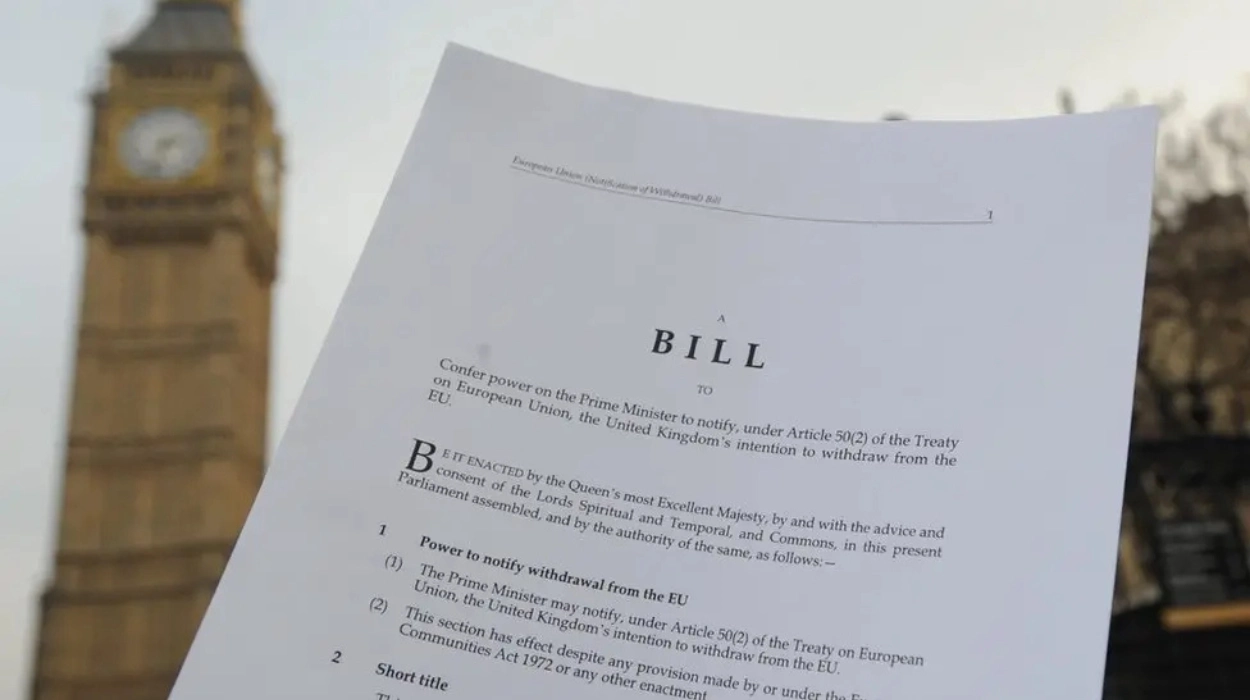Laws are the rules that guide how a country works and protect people’s rights and freedoms. In the UK, making a law involves careful review, debate, and agreement between different parts of government. From introducing a bill in Parliament to receiving Royal Assent, this process shows how democracy works and how decisions affecting daily life are made.
The Role of Parliament in Law-Making
There is the UK Parliament whose two main chambers are the House of Commons and the House of Lords who mainly pass laws that are debated by them. The House of Commons consist of elected Members of Parliament (MPs) whereas the House of Lords has members who are appointed like Lords and Baronesses. The main duties of parliament include scrutinizing the proposals made by the government and revising them in accordance, as well as making the decisions on whether this needs to be passed into law or not.
Although parliament is sovereign it performs various international duties, e.g.the ones offered under European Convention on Human Rights. The Crown also has a significant role which is normally opening and releasing Parliament and finally blessing the laws which have passed in both Houses which is called Royal Assent.
All the laws are not applicable in the entire UK, Scotland, Wales and Northern Ireland are also devolved and have the power to govern in certain fields such as health, education and housing. Such as the example in Wales where the law requires the consideration of the UN Convention on the Rights of the Child in policy formulation which gives more weight to the rights of the child than in other places in the United Kingdom.
What is a Bill?
A Bill is a proposal of a new law or amendment to an existing one that is given a debate in parliament. The government, individual MPs or Lords, even third parties, including citizens and other groups, may introduce bills. Bills are of various kinds i.e. there is a type of Public Bills, Private Bills, Hybrid Bills, and Private Members Bills.
The government may publish a White Paper precluding the proposed alterations before actual announcement. Parliamentary committees may scrutinize Draft Bills, sometimes after taking evidence on the Bill in draft, consult with experts and the general public before a Bill finally undergoes the process.
A bill can begin either in the House of Commons or in the House of Lords, however taxation bills must begin its life in the Commons. They are then read severally in each of the two Houses together with debates, voting and chances of amendments. The Bill is analyzed line-by-line in the committees and any changes proposed are put in consideration. It is performed till both Houses concur on the final wording.
The Path to Becoming Law
Once the House of Commons and the House of Lords come to a mutual agreement over a Bill, it is submitted to the Crown so that it can have Royal Assent. Since 1707 the step has not been refused, without which a Bill can become an Act of Parliament–that is, binding in law.
An Act tends to commence at midnight on the day of Royal Assent, but in the majority of cases the commencement date is a delayed one, typically a practical day for administrative purposes. Notably, laws can never be enforced retroactively hence it is not possible to punish anybody due to an act that was not a crime at the time it was committed.
Since the government can usually command a majority in the Commons, its Bills tend to become law, since MPs are expected to tow the party line, a process colloquially described as being “whipped.”
Primary vs Secondary Legislation
Primary legislation is the acts of parliament. Nevertheless, numerous acts are complemented or modified by secondary legislation, which gives the ministers the opportunity to provide the details or update the legislation, but not by following a full process in the parliament. Though this is an effective way of accelerating the creation of law, it has been criticized to inhibit scrutiny especially in situations like the Covid-19 tragedy when laws were implemented quickly.
The UK law-making process is a combination of swiftness with responsibility such that the new laws are discussed, revised, and tried before they enter into effect. Laws can be made through legal procedures and through proper understanding of the process, citizens can more effectively participate in political decision making, bring rulers of the law before them and help create the society where they live.

